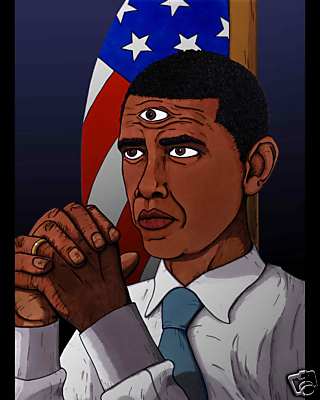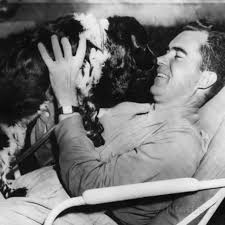From JFK: Â The Man ant the Myth, Victor Lasky, 1963. Â The bias is certainly against Kennedy, and Lasky is unable to see anything good out of Kennedy. Â Also it should be pointed out in partisan terms, Johnson wasn’t the boogey man and could be shuttled aside against the real enemy of Kennedy. Â Thus, this:
The break that Johnson had been waiting for came on Tuesday. Â In routine fashion, Kennedy headquarters had sent wires to various delegations requesting an audience for Jack. Â This was the sort of miscalculation which Kennedy had feared. Â Johnson replied with a telegram suggesting a joint caucus of the Texas and Massachusetts delegations and a debate on the major issues. Â Kennedy declined the honor and assumed the debate was off. Lyndon assumed no such thing and announced that Texas would hold an important business meeting at 2:15 pm, and the delegations would expect Kennedy and the Massachusetts delegation in the grand ballroom of the Biltmore. Â The spider was spinning his web. Â […]
At 2:45 pm, Lyndon rode in with his boys from the Cattle Country. Â Dressed in tv blues, he was all set for his showdown. Â Unlimbering his oratorical artillery, Lyndon asked whether anyone who could speak for Kennedy knew where the Senator was. Â The Senator was upstairs in Apartment Q, not knowing what to do. Â The phone rang. Â It was Governor Hollings. Â “You’re going down to that debate, aren’t you?” Hollings asked. Â Jack said he didn’t think so. Â “You’d better get down there,” drawled the South Carolinian. Â “I’m watching that commentator on TV and he’ll ruin you if you don’t.”
It was 3:12 pm before the author of that book on political courage arrived in the jam-packed ballroom. Â And Lyndon was right glad to welcome him. Â Lyndon, in presenting his colleague, said he was “a man of unusually high character,” Â ” a great intellect” as well as “a dedicated and devoted public servant.” Â Lyndon sounded very sincere.
As he rose to speak, Kennedy’s trembling legs made his trousers flutter, and beads of sweat tumbled from his upper lip. Â He made a set speech about the need for developing natural resources, facing up to new problems, and so forth. Â We stand, he said, on the Razor Edge of Decision. Â Against Kennedy’s conciliatory remarks, Lyndon unloosed a barrage of sarcasm, the likes of which have rarely been heard in a face-to-face encounter. Â Johnson pistol-whipped his guest unmercifully. Â He repeatedly drew attention to Kennedy’s voting record and Senate absenteeism. Â He questioned Kennedy’s devotion to the former and reminded his audience that he was for rural telephones long before some people had ever seen an outhouse. And he brought up the religious issue, an action that did not appear to appeal to Kennedy. Â “I think, Jack, we Protestants proved in West Virginia that we’ll vote for a Catholic,” he bawled. Â “What we want is some of the Catholic states to prove that they’ll vote for a Protestant.”
With each sharp shaft — and they were coming quickly — the Johnson loaded room hooted and cheered. Â The back of Kennedy’s neck began to redden, though his face remained expressionless. Â His hands trembled as he appeared to be making notes on the back of an envelope.
And, bellowed Johnson, where were certain people during all those quorum calls on the civil rights bills? Â “There were 45 roll calls on civil rights in recent months,” he observed. Â “Lyndon Johnson answered every one of them.” Â But, he added, there were some people who would like to be President who failed to set much of a record. Â “I know Senators who missed as many as 34 of those roll calls,” he thundered.
Bobby whispered in to brother Jack’s ear. Â Kennedy’s face remained expressionless. Â And when Johnson finally concluded, Kennedy arose and made jokes. Â “The Senator wasn’t specific in his remarks about voting on civil rights legislation,” said Kennedy. Â So I presume he was talking about some other candidate. Â Then, accompanied by brother Bobby, Jack Kennedy hurriedly rushed out of the Texans’ den of iniquity. Â Superman had more than met his match in Big Daddy.
“Flogged and whimpering, Kennedy bit it off and departed,” reported Murray Kempton  from the battle scene.  “This is the posture to be expected of all Booth Tarkington adolescents.  The Kennedy boys are essentially punks.  As he himself said to this repository of the affectations of politicians yesterday, this is the way weak people act.  There are men and there are boys.  Lyndon Johnson, say what you will, is a man; Jack Kennedy is a boy.  No matter what anyone else might say, Lyndon placed Jack across his knee and spanked that shrunken bottom. […]”
……………………….
From Robert A Caro, The Years of Lyndon Johnson: Â The Passage of Power, 2012. Â Caro is constructing a narrative where Johnson falls mightily from the perch of power up to the time he becomes President — Kennedy serving here as a foil of a strong political figure he underestimate but who then cuts him up, and thus we get this:
It was only a form telegram, but when Johnson received it, he seized upon it as the opening he had been waiting for: the opening that could, even at this late moment, change everything — a chance to trap Kennedy into a debate. Â “I want to get on the same podium with Jack,” he told Irv Hoff. Â “I’ll destroy him.”
Connally, Reedy, and Busby, when they were called in, were unanimously enthusiastic: “one major error” by Kennedy, Connally felt, and the Kennedy bandwagon, which he believed was not yet on completely firm ground anyway, would be overturned. Â […]
As he took his seat on the stage, Kennedy wasn’t at ease — a reporter noticed his leg shaking under his trousers — but no one  seeing only his face would have known it.  And when he rose to speak, looking at the ballroom that, as one Texas reporter wrote, “Johnson had packed full of his folks,” Kennedy said with a smile that he was glad the vote for the nominated wasn’t taken there.  “I doubt whether there is any great groundswell for Kennedy in the Texas delegation,” he said.  The audience chuckled at that, and laughed when, after promising to campaign for Johnson if Johnson won the nomination, he said, “And if I am nominated, I am confident that Senator Johnson will take me by the hand and lead me through the length and breadth of Texas.”  He said he wasn’t going to argue with Johnson on the issues — “because I don’t think Senator Johnson and I disagree on the great issues that are facing us” — and said he admired him for his work as Majority Speaker.  […]  When Kennedy sat down at the end of his opening statement, there was quite a bit of rather warm applause.
Johnson started off on Phil Graham’s “high road.” although it was an arm-waving blustering journey […] Â He had gotten a Civil Rights Bill through the Senate, he said, but not every Senator had been present to help him. Â “Six days and nights we had 24 hour sessions,” he said, shouting every word. Â “Lyndon Johnson answered every one of the fifty quorum calls. Â Some men who would be president answered none.” Â He had voted in forty-five roll calls, he said. Â “Some Senators missed 34.” Â A Texas legislator, George Nokes, leaned over and whispered loudly to the other people in the aisle, “Lyndon sure bear-trapped him, didn’t he?”
After a brief, whispered conference with his brother, Kennedy rose to reply. Â Johnson’s face had been grim as he spoke. Â On Kennedy’s face was a grin. Â Senator Johnson had criticized some Senators, he said, but he had not identified those he was talking about, so “I assume he was talking about some other candidate, not me.” Â The grin broadened. Â “I want to commend him for a wonderful record answering quorum calls,” he said.
People in the audience started to chuckle, and then others started to laugh, and a wave of laughter swept over the hall. Â Turning to Johnson, Kennedy shook his hand for the photographers, and walked out of the hall, his little band following him.
Watching Johnson as Kennedy spoke, Arthur Schlesinger saw his face change. Â “Johnson felt that Kennedy had the drop on him,” he was to say. Â That was what the Texas delegation thought, too — even those who, like Jim Wright, had been Johnson’s “eager disciples.” Â Wright, a very tough politician — […] was to recall decades later […] “By the time he ended, he had our admiration — begrudging but admiration.” Â In fact, in describing the debate, Wright bestowed on Kennedy what was, for a Texan, the highest accolade possible. Â Jack Kennedy, he was to recall, had reminded him that afternoon of the legendary Texas Ranger who was sent in 1906 to a city down on the Rio Grande border […] “only one Ranger?” “only one riot” […]
“Really, it didn’t come off as we had expected it to,” Jake Jacobson says. Â […] “He got cured once and for all of getting into a debate with Jack Kennedy,” Irv Hoff says.



